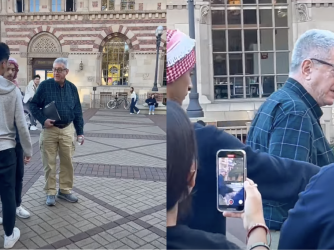Table of Contents
The wisdom of the University of Chicago’s ‘Kalven Report’
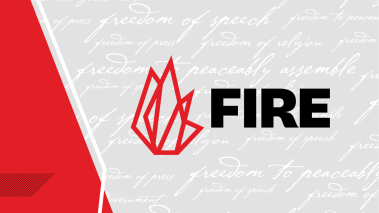
In February of 1967, the president of the University of Chicago convened a faculty committee to produce a recommendation on how the institution should approach “political and social action.” The group of seven professors confronted a challenging assignment. The United States was on fire — literally and figuratively — with protest, generational upheaval, and civil unrest.
The previous year, crowds of Chicago students gathered to demand the university divest from financial institutions with ties to South Africa and to stage a sit-in to protest the draft. And the months that followed the committee’s convening became both the “long, hot summer” and the “Summer of Love,” as simmering racial tensions exploded into riots across the country, tens of thousands of young Americans converged on San Francisco in search of love and liberation, and the grim toll of the Vietnam War mounted daily.
As the nation roiled, the faculty members considered their charge: How should a university respond to the burning political and social issues of the hour? What should a university say or do when partisans of all stripes demand it choose sides and take action?
The committee’s answer was simple: The university must remain neutral.
Chaired by Harry Kalven, Jr. — a leading First Amendment scholar, and the attorney who successfully defended comedian Lenny Bruce against Illinois obscenity charges — the committee produced the Report on the University’s Role in Political and Social Action (the “Kalven Report”). The report’s central conclusion was that neutrality is necessary to maintain a university’s fidelity to its core mission: “the discovery, improvement, and dissemination of knowledge.”
“There is no mechanism by which it can reach a collective position without inhibiting that full freedom of dissent on which it thrives,” wrote the committee.
Neutrality does not mean turning a blind eye to social and political questions. Indeed, the committee recognized the university “has a great and unique role to play in fostering the development of social and political values in a society.” But — crucially — the committee declared this function to be “a role for the long term,” a role “defined by the distinctive mission of the university and defined too by the distinctive characteristics of the university as a community.”
Kalven and his fellow committee members recognized that taking sides in the day’s debates would necessarily close the university to dissenting scholars and disfavored ideas, undermining its long-term, knowledge-discovering role. “There is no mechanism by which it can reach a collective position without inhibiting that full freedom of dissent on which it thrives,” wrote the committee. “It cannot insist that all of its members favor a given view of social policy; if it takes collective action, therefore, it does so at the price of censuring any minority who do not agree with the view adopted.”
The committee concluded that individual faculty members and students are the “instrument of dissent and criticism.” The university, on the other hand, “is the home and sponsor of critics; it is not itself the critic.”
By avoiding the push and pull of particular political and social commitments, the neutral university will confront fewer calls to censor critical and dissenting voices.
The clarity of this solution remains profoundly relevant and useful today, and institutional neutrality is as important now as it was in 1967. As all Americans know, we now face our own social and political challenges, searing headlines, and deep divisions. Confidence in institutions of higher education has waned amongst the general public, and our colleges and universities have themselves become both political battlegrounds and targets for legislative retribution. All the while, faculty and students nationwide continue to face censorship and punishment for dissenting from prevailing opinion or challenging official narratives.
In light of the challenges facing the academy and the world, FIRE urges colleges and universities to adopt a position of institutional neutrality, for all the reasons identified in the Kalven Report.
By clarifying the contours of its role, a university adopting the Kalven Report and committing to neutrality is better positioned to fulfill its mission of generating and disseminating knowledge. By not tethering itself to a particular position, the neutral university will welcome the fullest range of views — and reap the benefit of the wisdom produced by the resulting debate. By avoiding the push and pull of particular political and social commitments, the neutral university will confront fewer calls to censor critical and dissenting voices. Once a university proves its enduring and principled neutrality, it will be free to focus its attention more fully on supporting its students and faculty and cultivating the conditions most conducive to their success. And the neutral university will reestablish itself as a unique entity in our society’s array of public and private institutions, rebuilding trust in higher education as open to all.
We recognize, as did the committee, that adopting the Kalven Report’s commitment to neutrality presents its own challenges. As the committee noted, neutrality can constitute an unwarranted and self-defeating retreat when “society, or segments of it, threaten the very mission of the university and its values of free inquiry.” In those times of “crisis,” the committee concluded, “it becomes the obligation of the university as an institution to oppose such measures and actively to defend its interests and its values.” Properly identifying what constitutes such a threat — and what does not — will be difficult. Nevertheless, the report argues for “a heavy presumption against the university taking collective action or expressing opinions on the political and social issues of the day, or modifying its corporate activities to foster social or political values, however compelling and appealing they may be.”
Since 1999, FIRE has defended the expressive rights of students and faculty — and like the First Amendment itself, we defend speech without regard to the speaker’s ideology, politics, or viewpoint. Our case archives demonstrate our unwavering commitment to freedom of expression and academic freedom, no matter how unpopular, contested, or critical of prevailing wisdom. To ensure the fidelity of our commitment, FIRE does not take a position on the merit of the speech we defend. By maintaining institutional neutrality, we preserve our ability to vigorously defend the rights of all without apology or qualification.
Today, we call on colleges and universities to do the same.
Recent Articles
FIRE’s award-winning Newsdesk covers the free speech news you need to stay informed.
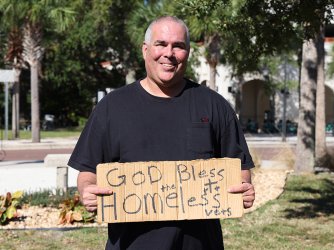
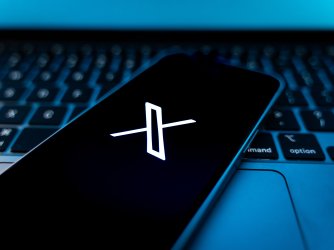
FIRE Statement: X Corp's lawsuit and Texas's investigation into Media Matters for America are deeply misguided
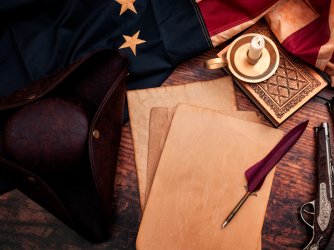
Anonymous speech is as American as apple pie
